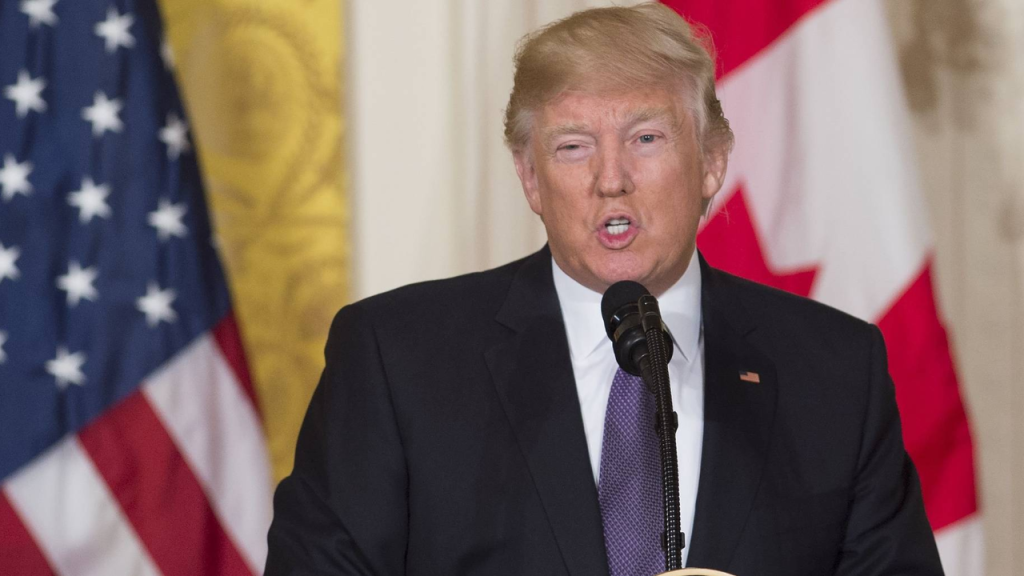
Recently, Wall Street has been struggling with what seems to be a growing realization among investors that President Trump may not be mentally stable. Many market experts now believe that he may be suffering from dementia or some other cognitive decline.
This is not just about his controversial policies or trade wars anymore. It’s about his mental fitness to continue leading the nation, and the impact this uncertainty is having on the global markets.
Historically, when markets have faced challenges, such as economic downturns or policy changes, investors have always been able to make sense of it. There’s usually a clear, if not always agreeable, explanation and a stable plan of action.
However, with Trump, things seem far more unpredictable. It’s not simply about his policies; it’s the feeling that no one, including the President himself, really knows what he is going to do next.
Take the stock market’s recent plunge as a prime example. On Monday, the S&P 500 saw a drop of 2.4%, while the Dow Jones fell 2.5%, and the Nasdaq dropped 2.6%. The situation is even worse when you look at US government bonds and the value of the dollar, which also saw declines.
Typically, bonds and the dollar are seen as safe investments during times of uncertainty. However, this time, it seems that the policies coming directly from the White House are the source of the market’s fear.
The situation worsens with Trump’s frequent attacks on Federal Reserve Chairman Jerome Powell. Trump has repeatedly threatened to fire Powell unless he lowers interest rates, a move that could send shockwaves through the market.
While Wall Street generally supports lower rates because they boost stock prices, the fear is that a less independent Federal Reserve might struggle to control inflation and, in turn, harm the economy. A less effective Fed could ultimately damage the reputation of the United States as a reliable place to invest.
The Wall Street Journal highlighted the growing investor unease with a headline that summed things up perfectly: “Dow Headed for Worst April Since 1932 as Investors Send ‘No Confidence’ Signal.”
The lack of clear direction in Trump’s trade negotiations with global partners has only fueled this uncertainty. As the Journal pointed out, very few believe that the administration will reach any agreements soon enough to ease the mounting economic strain.
One of the biggest issues investors are grappling with is Trump’s inconsistency. Charles Gasparino, a Fox Business reporter, noted that negotiators from Japan have been complaining about the constant changes in what the US wants from trade deals.

It’s almost as if the President can’t decide what he truly wants, making it difficult for markets to anticipate the future. This erratic behavior not only confuses but also creates an environment where trust in the administration has rapidly eroded.
For example, Trump recently agreed to pause his aggressive tariff stance against China for 90 days, largely because Treasury Secretary Scott Bessent and Commerce Secretary Howard Lutnick were able to persuade him to back down. This flip-flopping has left markets in turmoil, and investors are increasingly unsure of where the country’s economic policies are headed.
Trump’s mental state has become a serious concern for both political and financial analysts. The behavior he’s exhibiting — the meandering thoughts, the inability to stick to a single line of reasoning — has raised doubts about his cognitive ability to handle the immense pressures of running a country.
Last year, CNBC anchor Andrew Ross Sorkin reported that corporate leaders who met with Trump were left feeling “disheartened” by his behavior. He was reportedly unable to keep his thoughts straight and would frequently jump from topic to topic without any clear connection.
Despite these concerns, many business leaders were still willing to overlook his mental state, seeing the potential economic benefits of deregulation and tax cuts.
However, as the markets continue to struggle and Trump’s mental decline becomes more evident, it seems that there’s no turning back. Corporate leaders who once supported him are now facing the consequences of backing a president who may not be fit for office.
The uncertainty created by Trump’s cognitive issues is now being felt on Wall Street and beyond. Investors are adjusting to a “high volatility regime,” as Bloomberg’s Michael Regan put it, with no clear end in sight.
It’s becoming increasingly clear that America under Trump is becoming something similar to Russia under Vladimir Putin — a system where the rule of law is replaced by the rule of one man.
In the end, Wall Street’s loss of confidence in Trump isn’t just about his policies. It’s about a deeper issue — the growing realization that the President may not be mentally capable of fulfilling the duties of his office, and that lack of confidence is now sending shockwaves through the global financial system.
